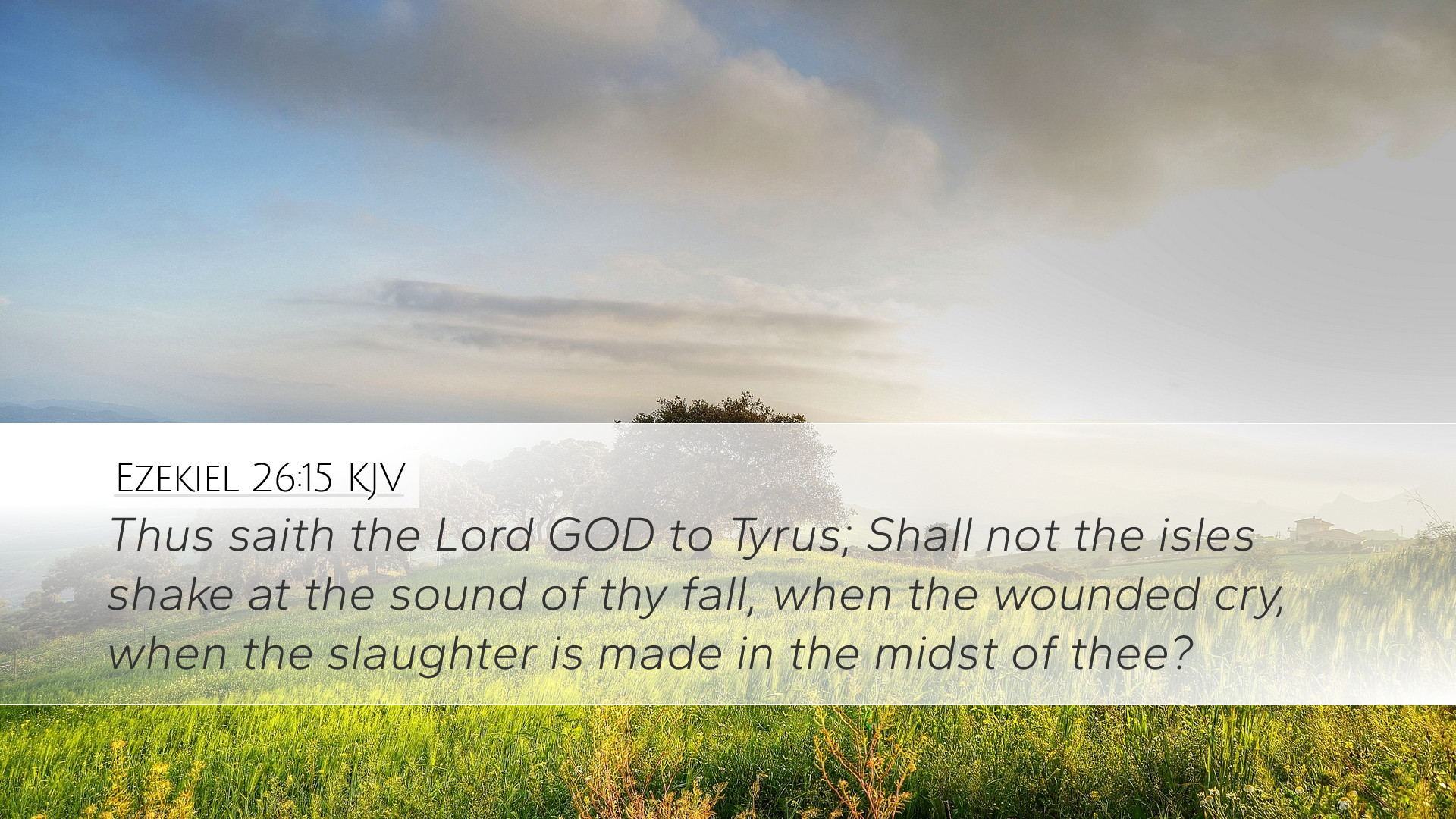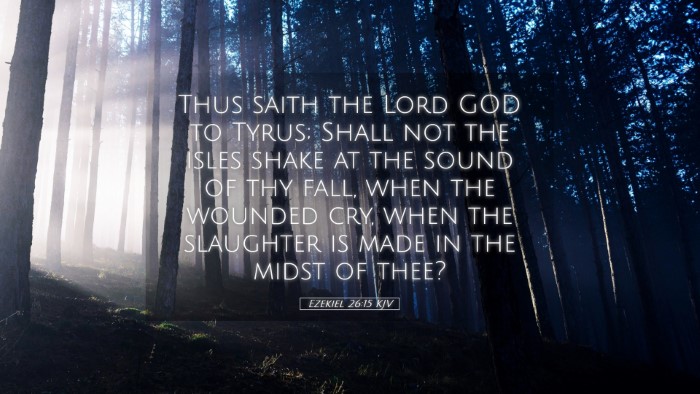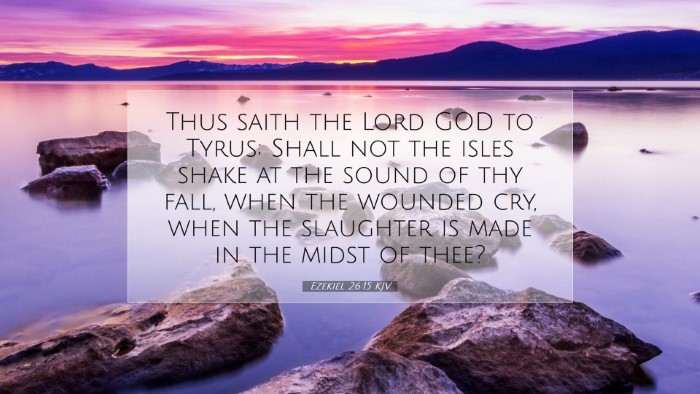Commentary on Ezekiel 26:15
Ezekiel 26:15: "What is the report concerning Tyre? Shall it be said that she is all of her might a city and a crown, or very splendid?"
Introduction
The prophecy against Tyre found in Ezekiel 26:15 serves as a significant turning point within the broader narrative of judgment pronounced on nations and cities that defied the sovereignty of the God of Israel. As the city of Tyre, a hub of commerce and power in the ancient world, faces impending doom, this verse encapsulates the essence of prophetic lamentation and the implications of divine judgment.
The Context of Tyre's Judgment
Tyre was renowned for its wealth and cultural influence during the time of Ezekiel. The city was built on an island close to the mainland and was fortified, making it a formidable opponent. The prophets of Israel, particularly Ezekiel, emphasize God’s sovereignty over all nations, including those that appeared invulnerable.
- Historical Significance: Tyre’s strategic location made it a center for trade and commerce, and its strength was thought to be derived from its fortified position and alliances.
- Prophetic Context: The destruction of Tyre serves as a warning to other nations about the ultimate sovereignty of God and foreshadows the downfall of every prideful nation that stands against Him.
Insights from Public Domain Commentaries
Matthew Henry: Henry emphasizes the rhetorical question posed in this verse, suggesting that the report concerning Tyre is one of devastation rather than glory. He notes that Tyre, once a symbol of pride and power, would face a reckoning for its arrogant defiance. He interprets this as a reminder that human strength is illusory and that only God's will prevails.
Albert Barnes: Barnes points out that this verse reflects the prophetic tone of doom regarding Tyre's future. He underlines that the 'report' symbolizes the news of destruction that will ultimately reach all corners of the earth. For Barnes, there is a strong emphasis on the divine judgment manifesting through historical events, and Tyre's eventual downfall serves as a profound lesson for the nations surrounding it, urging a repentance aligned with the acknowledgment of God’s rule.
Adam Clarke: Clarke delves deeply into the linguistic structure of the verse, arguing that the phrasing implies a question of identity for Tyre. He discusses how the once-mighty city will be rendered insignificant, raising questions about her former glory and the pride of her inhabitants. Clarke asserts that the prophetic utterance serves both as a warning and a reflective introspection on the nature of true power and security, which ultimately resides in God alone.
Theological Reflections
This verse offers profound theological implications relevant to scholars and theologians alike:
- Sovereignty of God: The prophecy serves as a declaration of God’s unwavering authority over the affairs of humankind. It challenges the notion that civil power and wealth can shield a nation from divine retribution.
- Human Pride and Vulnerability: The text confronts the disposition of nations that might contend with God, urging humility and recognition of their vulnerability to divine judgment.
- Historical Lessons: The fate of Tyre is a cautionary tale—an example for contemporary nations on the implications of pride and the inevitability of accountability under God's sovereign governance.
Practical Applications
For pastors, students, and theologians, Ezekiel 26:15 encourages several practical applications:
- Preaching on Human Frailty: Emphasize the transient nature of human achievements and the necessity for reliance on God’s power.
- Encouragement to Humble Leadership: Church and political leaders should be reminded of their ultimate accountability to God, encouraging a posture of humility and respect for divine authority.
- Contextualizing Modern Power: Engage in discussions on how modern nations often reflect the pride of Tyre and the potential consequences that could follow if they align against God’s will.
Conclusion
In conclusion, Ezekiel 26:15 stands as a powerful testament to the prophetic tradition that underscores the sovereignty of God over all nations. The commentary from respected scholars like Matthew Henry, Albert Barnes, and Adam Clarke enriches our understanding of the verse, calling attention to the theological and practical implications for contemporary faith communities. As such, may we heed the lessons of Tyre and nurture a faith that seeks God's guidance above the fleeting glories of human power.


